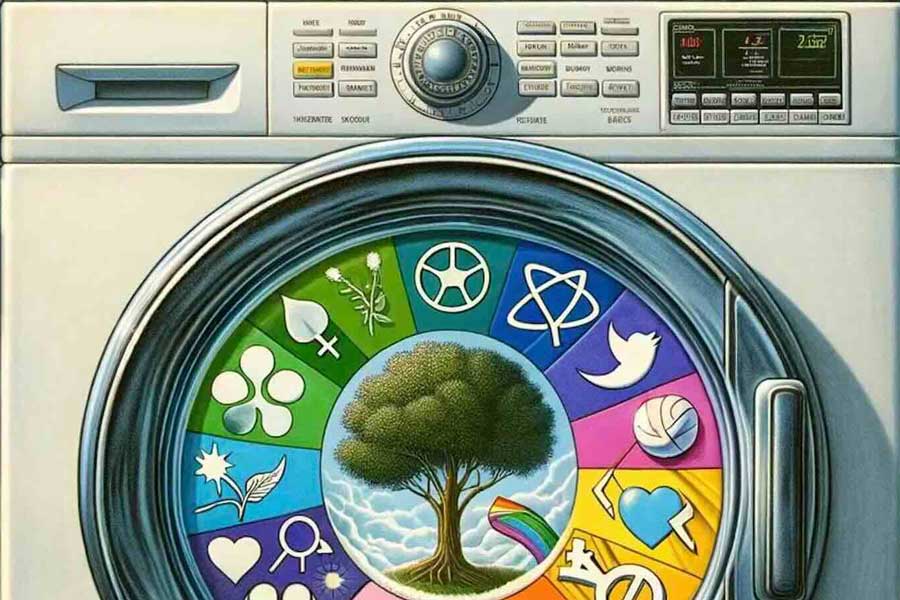A Guide for Exporters into the EU
The Importance of ESG Reporting for Businesses: In recent years, sustainability measures have become an integral part of business operations across all sizes. With the ever-increasing sustainability reporting laws and regulations popping up globally, companies can no longer ignore them. As a result, navigating the complex landscape of existing and upcoming regulations can be daunting, with terms like SFDR, CSDR, and NFRD to keep in mind.
To help exporters stay informed, this article outlines some of the key ESG regulations that will take effect in 2023, with a particular focus on the EU Sustainable Finance Disclosure Regulation (SFDR) and the EU Taxonomy.
EU Sustainable Finance Disclosure Regulation (SFDR)
The SFDR is a European regulation aimed at enhancing transparency in the sustainable investment market. It was introduced to prevent misleading environmental claims (also known as “greenwashing”) regarding investment products. The SFDR imposes comprehensive disclosure requirements covering a range of environmental, social, and governance (ESG) metrics, both at the entity and product levels.
While the SFDR has been applicable since March 2021, it became mandatory on January 1st, 2023, when it entered the level 2 phase. Financial market participants, including investors and other financial market participants (FMPs), who now fall within the scope of regulations, must adhere to prescribed disclosure requirements. This includes collecting relevant data from portfolio companies and other entities, implementing reporting templates (also known as Principle Adverse Impact indicators), and aligning reporting processing with the content and methodologies laid out by the regulation.
EU Taxonomy
The EU Taxonomy is a classification system that establishes a list of what economic activities should be considered sustainable. It plays an essential role in helping the EU scale up sustainable investments while implementing the European Green Deal. The purpose of this taxonomy is to combat greenwashing and assist investors in selecting environmentally conscious investments.
Investments are evaluated based on six criteria: contribution to mitigating climate change, ability to adapt to climate change, alignment with circular economy principles, impact on pollution, effect on water, and their impact on biodiversity. While the EU Taxonomy has been around since 2020, large companies and financial market participants offering products and services within the EU have not been obliged to report on their alignment until January 1st, 2023.
Organizations must now publicly disclose to the degree their turnover is taxonomy-aligned, i.e. fulfils the EU Taxonomy criteria on what is considered a “green” or “sustainable” economic activity. This is achieved by amending the disclosure requirements in the EU’s Corporate Sustainability Reporting Directive (CSRD) and the Sustainable Finance Disclosure Regulation (SFDR). Before 2023, companies were only required to disclose the alignment for the first two criteria, namely climate change mitigation and climate change adaptation. It is now mandatory to disclose each economic activity’s alignment with the Taxonomy’s six environmental objectives.
The EU Sustainable Finance Disclosure Regulation (SFDR)
The EU Sustainable Finance Disclosure Regulation (SFDR) is a European regulation aimed at enhancing transparency in the sustainable investment market. The SFDR aims to prevent misleading environmental claims, commonly known as “greenwashing,” regarding investment products. The SFDR imposes comprehensive disclosure requirements covering a range of environmental, social, and governance (ESG) metrics, both at the entity and product levels.
Although the SFDR has been applicable since March 2021, it only became mandatory on January 1st, 2023, when it entered the level 2 phase. Financial market participants (FMPs) who now fall within the scope of regulations must adhere to prescribed disclosure requirements, including collecting relevant data from portfolio companies and other entities, implementing reporting templates (also known as Principle Adverse Impact indicators), and aligning reporting processing with the content and methodologies laid out by the regulation.
The SFDR applies to investors and other financial market participants (FMPs) and is a significant consideration for exporters dealing with financial institutions. Failure to comply with the SFDR regulations could lead to reputational damage and possible financial penalties.
The EU Taxonomy
The EU Taxonomy is a classification system that establishes a list of what economic activities should be considered sustainable. The taxonomy could play an important role in helping the EU scale up sustainable investments while implementing the European Green Deal. The purpose of this taxonomy is to combat greenwashing and assist investors in selecting environmentally conscious investments.
While the EU Taxonomy has been around since 2020, large companies and financial market participants offering products and services within the EU have not been obliged to report on their alignment until January 1st, 2023. Organizations must now publicly disclose to the degree their turnover is taxonomy-aligned, i.e. fulfils the EU Taxonomy criteria on what is considered a “green” or “sustainable” economic activity.
Investments are evaluated on six criteria, including contribution to mitigating climate change, ability to adapt to climate change, alignment with circular economy principles, impact on pollution, and effect on water and their impact on biodiversity. Before 2023, companies were only required to disclose the alignment for the first two criteria, namely climate change mitigation and climate change adaptation. It is now mandatory to disclose each economic activity’s alignment with the Taxonomy’s six environmental objectives. Large companies offering products and services within the EU are particularly affected by the EU Taxonomy, and it is critical that they take steps to comply with the new disclosure requirements. Failure to comply with the disclosure requirements could lead to financial penalties and damage to an organization’s reputation.
CSRD vs ISSB: Comparing Climate-Related Disclosures
In recent years, the importance of climate-related disclosures has become increasingly evident, with investors seeking greater transparency on companies’ environmental, social, and governance (ESG) practices. Two prominent frameworks that have emerged in response to this demand are the Corporate Sustainability Reporting Directive (CSRD) and the International Sustainability Standards Board (ISSB). While both frameworks share similarities in their focus on ESG and climate-related disclosures, they differ in their methods and goals. In this article, we will explore the similarities and differences between CSRD and ISSB, and their potential impact on businesses and investors.
Similarities Between CSRD and ISSB:
- CSRD and ISSB are both aimed at promoting ESG and climate-related disclosures, with the goal of providing investors with reliable information on companies’ sustainability practices.
- Both frameworks require companies to disclose information on their carbon emissions, climate risks, and other sustainability-related metrics.
- Additionally, both frameworks aim to promote greater transparency and accountability in corporate reporting, helping investors make informed decisions.
Differences Between CSRD and ISSB:
While CSRD and ISSB share some similarities, they differ significantly in their methods and goals.
- The ISSB is a voluntary framework that aims to unify all private stakeholders that adopt an ESG reporting framework. Its primary focus is on climate and ESG-related disclosures, with the goal of catering to the needs of investors.
- In contrast, the CSRD is a regulatory framework that places a greater emphasis on societal impacts. It leverages its ‘double materiality’ aspect to ensure that assets positively contribute towards building a carbon-free economy that helps with the urgent demands of climate action.
Another key difference between CSRD and ISSB is their approach to standards.
- The CSRD is based on standards and is regulatory in nature, while the ISSB offers only non-binding guidelines and suggestions.
- Additionally, the EU requires the European Financial Reporting Advisory Group (EFRAG) to provide standards for CSRD that consider international developments, such as those from the ISSB.
Implications for Businesses and Investors
The differences between CSRD and ISSB have implications for both businesses and investors.
- For businesses, complying with both frameworks may require additional reporting burdens, particularly for international companies. While the idea of creating an equivalence system between ISSB and CSRD to make any CSRD automatically compliant with ISSB could limit the reporting burden of international companies, the reality of this idea remains uncertain at this stage.
- For investors, the choice between CSRD and ISSB depends on their priorities. If their focus is on climate-related disclosures, then the ISSB may be a better fit. However, if they are interested in broader ESG and societal impacts, then the CSRD may be a more suitable choice.
Ultimately, the goal of both frameworks is to promote greater transparency and accountability in corporate reporting, helping investors make informed decisions that align with their values.
In conclusion, while both CSRD and ISSB aim to promote greater ESG and climate-related disclosures, they differ in their methods and goals. The ISSB is a voluntary framework that focuses on climate and ESG-related disclosures, while the CSRD is a regulatory framework that emphasizes societal impacts.
Both frameworks have implications for businesses and investors, with compliance potentially requiring additional reporting burdens. Ultimately, the choice between CSRD and ISSB depends on investors’ priorities and values, but the goal of both frameworks is to promote greater transparency and accountability in corporate reporting.
The German Supply Chain Due Diligence Act (the LkSG):
What You Need to Know
As of January 1st, 2023, the German Supply Chain Due Diligence Act, also known as the LkSG, has been put into effect. This act requires companies with over 3,000 employees to uphold environmental and social standards throughout their entire supply chain. The act has a broad scope and applies to both German and non-German companies that are selling goods or products in the German market.
In 2024, the act will be expanded to include companies with over 1,000 employees, which will significantly increase the number of companies that will fall under its scope. This move is part of Germany’s efforts to tackle human rights abuses in supply chains globally. What Does the LkSG Entail?
The LkSG requires companies to monitor their operations and direct suppliers worldwide to ensure that they are adhering to the social and environmental standards set forth by the act. This includes actively investigating any suspected violations and taking action to remedy any issues found. The act is intended to bring accountability to supply chains and ensure that companies are not benefiting from the exploitation of workers or the environment.
Who Will Be Affected?
Large companies with over 3,000 employees that sell goods or products in the German market will be directly affected by the LkSG. However, in 2024, the threshold for the number of employees will be reduced to 1,000, which will broaden the scope of the act significantly. This means that even smaller companies will have to comply with the act’s regulations.
Non-German companies that sell goods or products in the German market will also be affected by the LkSG. This is because the act is intended to tackle human rights abuses in global supply chains, regardless of the country of origin of the company.
Consequences of Non-Compliance
Companies that fail to comply with the LkSG or submit the required documentation risk facing fines and sanctions. Larger companies may face fines of up to 2% of their annual turnover, while smaller companies may be excluded from public contracts for up to three years. Additionally, non-compliant companies may suffer damage to their reputation and trust, which could impact their ability to conduct business in the future.
The German Supply Chain Due Diligence Act, also known as the LkSG, is a significant step towards tackling human rights abuses in supply chains globally. Companies that sell goods or products in the German market must comply with the act’s regulations, which require them to uphold social and environmental standards throughout their entire supply chain. With the threshold for the number of employees set to decrease in 2024, even smaller companies will have to comply with the act’s regulations. Non-compliance could result in significant fines, exclusion from public contracts, and damage to a company’s reputation and trust.
As we enter 2023, understanding the EU ESG regulations is crucial for exporters who are trading with the EU. Sustainability reporting regulations, also known as ESG regulations, have become an integral part of business operations across all sizes globally.
Two significant regulations that come into effect in 2023 are:
- EU Sustainable Finance Disclosure Regulation (SFDR)
- and EU Taxonomy
The SFDR imposes comprehensive disclosure requirements covering a range of environmental, social, and governance (ESG) metrics, while the EU Taxonomy establishes a list of economic activities considered sustainable, combating greenwashing, and assisting investors in selecting environmentally conscious investments.
Exporters dealing with financial institutions must comply with the SFDR regulations, failing which could lead to reputational damage and possible financial penalties. Large companies offering products and services within the EU are particularly affected by the EU Taxonomy, and it is critical that they take steps to publicly disclose their alignment with the Taxonomy’s six environmental objectives.
In Summary
Navigating the complex ESG regulations can be daunting, but global efforts to ensure consistency, accuracy, and transparency of disclosure requirements are being made, making it essential to stay informed.



